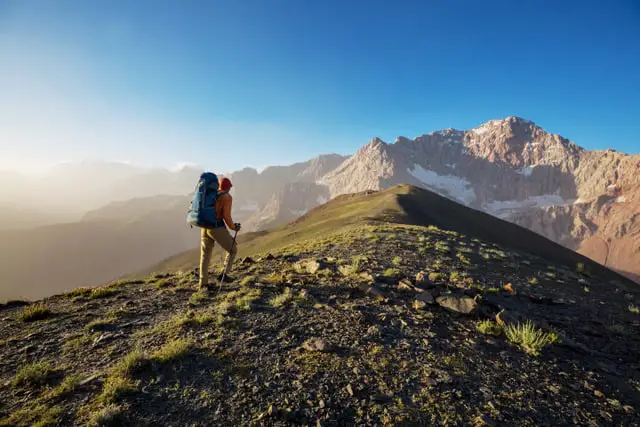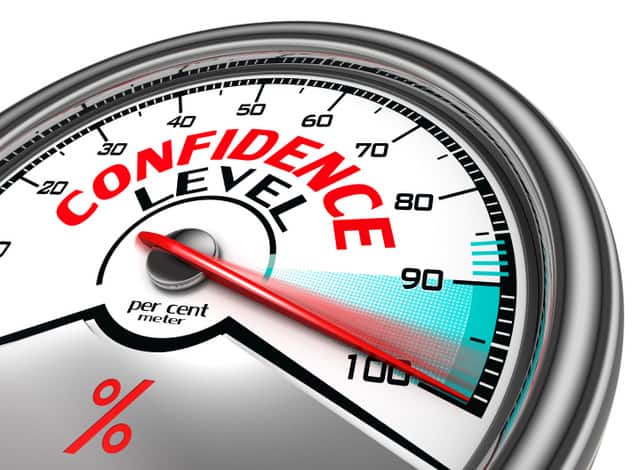
On its surface, the life of a digital nomad appears to be one of endless glitz and glamor. There’s constant jet setting, travel to exotic locales, and maybe a bit of work, too. Not exactly. The lifestyle is often quite different than you’d imagine unless you’re in it yourself. You have to be able to work remotely, and you need to be good at it. Remote working skills are a big key to your lifestyle success, and it cannot be overlooked or stressed enough.
Before I started my traveling lifestyle as a digital nomad, I wish I had known the following about remote work:
• The hours are long
• Income can vary
• It can be extremely lonely
• There’s no real routine
• It’s not as easy to stay productive as you’d think
• It’s on you to maintain your self-care
• It’s gratifying in many ways
In this article, I’ll elaborate on each of those points. While the life of a digital nomad isn’t the easiest, by acquainting yourself with the above realities, you are ready for what’s to come.

YOU HAVE TO WORK HARDER THAN EVER
If you’re considering the digital nomad lifestyle, you often run your own company. You’ve already put the blood, sweat, and tears in to grow the business to a point where you have the luxury to travel.
Lots of people think now’s the time to kick your feet up and relax. You can work maybe two or four hours a day and then call it quits, right? That’s certainly not true. What a lot of other digital nomads and I find is you start putting in more work than ever at this stage.
After all, you can’t let your business fall by the wayside. Even though you’re on the road or in a plane all the time, you’re still a business owner. You have to answer phone calls and emails, maintain relationships with current clients, and seek out new clients at the same time. If you sell products or services, you must come up with new ideas to keep your audience happy. All this without a dedicated office or workspace. It’s a ton of work!
Your company is your baby, and you feel a certain protectiveness over it. That often means lording over other employees, even remotely. You also probably say yes to more tasks than you should to keep the business afloat.
As I’m going to talk about later in this article, you typically don’t have a set work schedule as a digital nomad. You work when you can and where you can be it at hotels, conference halls, cafes, restaurants, wherever. You always find a way to set up your portable office.
IT’S NOT EASY TO STABILIZE INCOME
With all the work you put into your business, you should have tons of revenue flowing in.
I wish it were that easy, but it’s not. Not always.
It all depends on the kind of work you do. If you’re a freelancer, you’ll go through what’s known as the feast or famine period. As the name might tell you, during a feast, you have plenty of work coming your way. You may even get overloaded with too many assignments and have to turn some down to stay above water.
Then you enter the famine period. Projects end, work dries up, and you’re eagerly sniffing out your next source of income. You kick yourself forever for turning down work.
To avoid famine periods, experts say you should always market yourself. I don’t know about you, but sometimes after arriving somewhere after a 10-hour flight, marketing myself is the last thing on my mind. It gets put on the back burner again and again until you have to do it.
Those feast and famine periods can lead to income fluctuations. One month you’re doing great and the next, you’re scrambling.
Even if you own a business, you still kind of go through these feast and famine periods, first, you get a ton of business, and then it’s quiet. This pattern repeats, often less predictably, over and over.
Preparing for income fluctuations isn’t the world’s most impossible task, but now you’re adding travel on top of it. That becomes tougher to handle.
You have to consider also that even if you’re in the green financially, you’re always chipping away at your funds by traveling. No one’s sponsoring your next trip; it all comes out of your pocket (or the company’s pocket). You could earn a big, fat paycheck only to turn around and spend most of it on your next adventure.
I would advise learning money management skills if yours are rusty. Yes, you can travel, but you might have to strip the experience of some of its luxury. Instead of taking a first-class flight, maybe you fly economy. You can skip a few meals at that five-star restaurant and order room service instead. I’d even suggest buying ingredients and cooking if you have a hotel with a full kitchen.
By thinking and spending frugally at times, you can afford to splurge on lavish trips without dipping your income into the red. While it’s not easy to learn this balance, once you do, you’ll have plenty of opportunities to master it.
Finally, I want to mention the value of savings. If you can, always put a bit of money into a savings account. The cash you have stashed here can come in super-duper handy during extended famine periods.

THERE’S LOTS OF LONELINESS AND ISOLATION
When you’re in business for yourself, you’re often just that: by yourself.
Sure, you have coworkers and maybe even a co-founder back in your home country. They don’t travel with you, though. Unless you have a spouse or traveling companion you bring with you, then it’s just you.
If you’re the type who doesn’t like being alone for long periods, you might want to reconsider digital nomadism. I’ve found the lifestyle presents a lot of isolation, and many other remote workers/travelers feel the same way.
Of course, you won’t spend all your time by yourself, and if you’re good at making friends, that does make the experience a little less lonely. You might choose to strike up a conversation on the plane or while waiting in line to check out at a market. Perhaps you meet someone at the lobby of your hotel, at a beach, or in the mountains.
If you’re open to new social opportunities, you’ll find these moments can soothe your loneliness. Some of the people you meet could even become friends for life, but most will filter in and out as you travel somewhere else.
Also, know that you can always rely on your friends and loved ones back home. Social media today offers you so many options for keeping in touch that weren’t possible ten years ago. You can video chat on Skype or FaceTime or even have a lengthy phone conversation. While none of that can replace good, old-fashioned face-to-face contact, it’s close.
IT’S HARD TO STICK TO A ROUTINE
If you’ve come from an office environment before becoming a digital nomad, you’re used to structure and routine. You get up the same time each day, leave your house at a specific time, and always arrive to work at about the same time. You punch out at five o’ clock on the dot and get back home just in time for an evening of unwinding and relaxing.
I’ll tell you now, that kind of regular schedule doesn’t exist as a remote worker who travels. Unless you settle somewhere for weeks or months, you’ll work when you’re off the plane and can get an Internet connection. That might mean starting in the afternoon and working late into the night. You could also be up with the sun and stop when it goes down. It all depends on your availability.
To survive and thrive in this world, you’ll have to get used to eschewing a routine schedule. That’s undoubtedly hard if you’re a former office employee. Between the traveling, mishaps that can happen on the way (flight delays, anyone?), jetlag, and, you know, the need to eat and sleep, you work when you can. That includes nights and weekends, too.

PRODUCTIVITY CAN SUFFER IN A LOT OF WAYS
When you wake up each day as a digital nomad, you have to have a focused eagle eye and your nose to the grindstone. Well, if only it were that simple.
Traveling takes a lot out of you. Even when you do it all the time, you’re still susceptible to jetlag. If you’ve found a way to reduce your jetlag, there’s the sheer exhaustion of getting up at the crack of dawn, standing in an airport line for hours, and then enduring the flight. You want to sleep. I can’t blame you.
Now imagine going through all that and having to sit down and get some work done. It feels just about impossible, right? You have a lot to do, and if you ignore it, the work will only continue to pile up. You don’t even have the energy to go out and explore your new locale. Instead, you push through, powering on your computer, figuring out the Wi-Fi, and getting started.
You won’t fly every day, that’s true, but if you do it often enough, you will have a lot of days like this. The day after traveling doesn’t always restore your energy like you had hoped, either. You slog out of bed, bleary-eyed and exhausted, and do your best to get something done. I’ll tell you now, that’s no easy feat.
Let’s say you’re not tired. That doesn’t mean other distractions don’t abound. There are tons of them out there. How are you supposed to work when there’s a pool outside your hotel, or mountains you can see from your window? When there’s a beach about a mile down, and it’s so sunny outside who wants to stay cooped up inside?
You’re surrounded by temptation while you travel and work remotely. Part of succeeding as a digital nomad is having the discipline to say no, or at least “not right now.” Sadly, that often means grinning and bearing it on those sunny warm days you’d rather spend at the beach.
Without discipline, you’ll do what you want on your travels and work while you can. You’ll spend more money than you make and soon find yourself with no extra cash to pay for your next trip.
It’s not always easy, but you have to prioritize productivity. Get your work done first and then set aside some time for fun.
YOU HAVE TO MAINTAIN YOUR SELF-CARE
As the sole manager of your life and business, sometimes you end up overlooking certain things. You know, like sleep or relaxation. In a rush to always work, work, work, you often neglect elements of your self-care.
It may seem okay at first, even preferable. Who cares if you subsist mostly on coffee and only eat a meal a day? With time, though, you’ll wear yourself out until there’s nothing left. Unfortunately, lots of digital nomads turn to drugs and alcohol to manage the harsher elements of the lifestyle. From loneliness to burnout and everything in between, these substances can make it all go away. Soon, you end up with a whole more significant problem, a potential addiction.

How do you ward off all these issues? I recommend you prioritize your self-care whenever and however often you can. Make sure you eat several meals a day. Don’t just rely on fast food. It may be convenient, but it doesn’t provide you the long-term fuel you need to get through your workload.
Exercise when you can. When finished with work, don’t push yourself to commit to an itinerary with five or six items on it. Make sure you take the time to relax. There’s nothing wrong with skipping plans and sitting in your hotel room in bed with room service and a movie.
Each night, get sufficient sleep, at least six hours. When will you find the time, I know you’re asking? You’ll have to make it. Sometimes, you’ll have to choose sleep over work. The longer you burn the candle at both ends, the harder it becomes to get anything done anyway.
You’re all you have. Not your work, not your travels, not your fancy laptop or a nice hotel room. Just you. If you don’t take care of yourself, the rest of those other great things cease to exist. Keep that in mind the next time you try to push yourself past your limits.
THERE ARE LOTS OF REWARDS TO REAP
Until this point, I’ve outlined some of the downsides to the digital nomad lifestyle. Does that mean it’s all bad? Not at all! Once you get more comfortable with managing your time and money, you’ll find there are lots to love. You’ll also have the room in your schedule to enjoy it.
You get to see places that most people only ever add to their bucket lists. There’s no boredom in your life since you can always go to the next city that calls your name. If you want a mountainous region, a dense forest, a beach haven, or anything else, you can spend time in an environment you like most.
Growth in the form of self-confidence and building your character is one of the rewards which are not as visible as the others, and it is more intrinsic and personal. Your confidence will blossom when you are required to scout out a new place to live in another country, agree rents and purchase items which you have to negotiate in different cultural settings. Keeping your monthly cash-flow coming in will give you the necessary nudge to ask for additional projects or even a higher price for your work. You will also gain extra self-confidence when you learn to travel in-country and know a little bit of the foreign language.

All this self-confidence growth inevitably builds your character. Suddenly you may find yourself taking the initiative in choosing different types of work projects or volunteering to show other digital nomads or travelers the unique spots where to travel.
One other benefit which you get from this lifestyle is better knowing your preferences and maturing your tastes because you get to experience and try out new things almost every day. You will further refine your preferences and tastes in food, fashion, ways of living, social events and even the types of people you enjoy being around. Although all of us have these types of opportunities to explore our preferences, you get to experience this in a real way.
Along the way, you’ll meet countless fascinating people and learn to appreciate all walks of life a bit more. You’ll have the chance to immerse yourself in tons of cultures, from food to language, dress, traditions, and many other facets.
Best of all, you have freedom: no stuffy office, grinding day in and day out with no future in sight. You don’t have a boss looking over your shoulder because you are the boss. As a digital nomad, you have the keys to drive your life exactly where you want it. All along, you’re making money doing what you love.
It’s a happy, privileged lifestyle for sure, but you have to earn it. That’s not just initially, but every single day you go to work.
CONCLUSION
Are you thinking of becoming a digital nomad? While I much enjoy being a remote worker and traveler, I wouldn’t advise anyone to jump in blindly. There’s a lot you have to take into account before choosing this career path.
You often have to commit to very long hours without a real schedule. You’ll need a certain degree of discipline to keep working while you’d rather catnap or go outside and sit on the beach. Also, the lifestyle can be lonely. You’re often on your own, and that’s tough for just about anyone.
That said, the freedom you get through digital nomadism makes up for all those downsides. Traveling the world at your leisure and making money while doing it is a great experience and rewarding in many ways.
I’m the owner of Digital Nomad Explorer. I’ve traveled to over 50 countries and been an expat in Scotland, Finland, and China. I was a digital nomad while having my own robotics company and traveled throughout Europe and China working remotely. Currently, I’m location independent with a home base in Kirkkonummi, Finland.
